Bassholes - Profile
by Andrew Carver
published: 21 / 11 / 2002
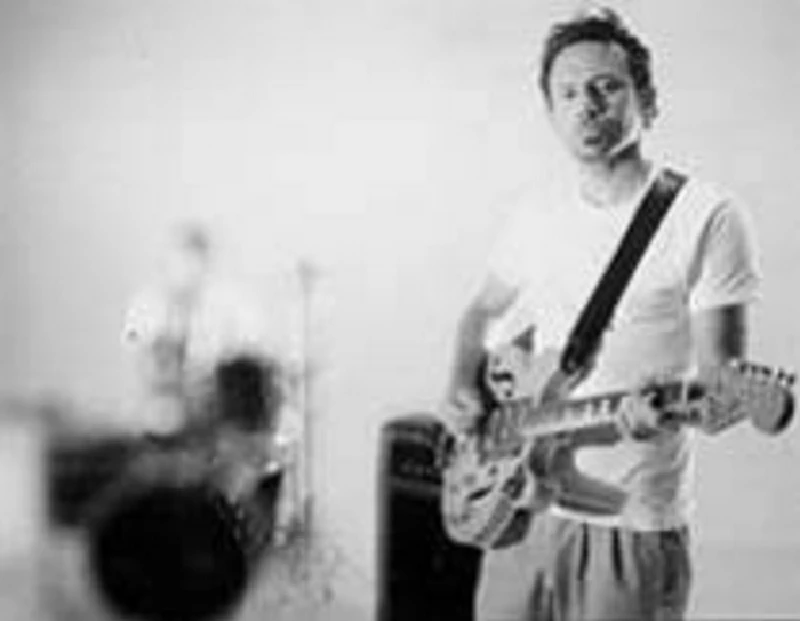
intro
Over the course of six albums Columbus, Ohio duo the Bassholes recorded six albums of twisted blues, that were influenced by both folk music and the Velvet Underground. Andrew Carver examines their abiding impact
Good morning judge, tell me what’s my fine ...? I said a-good mornin’ judge, tell me what’s my fine ...? A six-hundred dollars and eleven forty-nine ... — 'Judge Harsh Blues' It starts with an echoing wail, a few halfhearted chords, a quickly aborted Chuck Berry riff, then a few seconds of dead air, all in the lowest of lo-fi.After the dead air, there’s a repeated arpeggio, a hammering of drums in the distance, and the Bassholes crash into as twisted a version of Furry Lewis’'Judge Harsh Blues' as has ever been committed to magnetic tape. There are a lot of duos foraging through the roots of American music these days: the White Stripes, Modey Lemon, Black Keys, Mr. Airplane Man, Immortal Lee County Killers, early Soledad Brothers ; recent history has also seen Doo Rag and Flat Duo Jets. But when it comes to embodying what music writer Greil Marcus once called “the old, weird America,” few did it as well as the Bassholes. Over six albums, the Bassholes conjured the spirit of Harry Smith’s Anthology of American Folk Music,ran it through Charlie Feathers’ Kay single 'Jungle Fever' and rough Velvet Underground demos, and ended up with a curiously authentic update of the music of Charley Patton, Uncle Doug Macon and “Dock” Boggs. The sound of the Bassholes is definitely electric, with open strings howling and wailing, distorting and feeding back, treble cutting through the lo-fidelity murk and energetic, sloppy drumming.The singer wails, whines, cackles, leers and makes the occasional duck sound. The Bassholes were always the vehicle of guitarist and singer Don Howland — a school teacher and music writer whose trip through the back pages of music started with the Gibson Brothers (a band he fronted with Jeffrey Evans, now of ’68 Comeback; at times the band included Jon Spencer and Christina Martinez). On albums like 'The Man Who Loved Couch Dancing' the Gibson Brothers regurgitated Hasil Adkins, black gospel music, field hollers, the blues, and peculiar movie samples — all of which also went into the Bassholes. Rick Lillash, who also played on the Gibson Brothers’ 'Memphis Sol Today!' (SFTRI, 1993) drums on the earlier Bassholes recording. Lamont (Bim) Thomas, owner of Columbus, Ohio’s, Seldom Scene Records replaced Lillash on later albums. On their first album, 'Blue Roots', the Bassholes set their course. There’s the frenetic cover of Lewis’ 'Judge Harsh Blues', a more restrained 'Stack-o-Lee and Billy Lyons', which is accompanied by acoustic guitar and what sounds like Lillash slapping his thighs. They also draw on the themes of traditional tunes like 'When That Great Ship Went Down' to create musical descendants like 'Titanic Blues'. Other songs revisit the Gibson Brothers, as in 'It’s So Easy' and 'Love Cry Blues'. On the latter song Howland moans “I can’t sleep in this heat, I stay up thinking ...” and “I swear I’m going to find you .. if takes the rest of my life ...,” and then a sound clip replays a female voice saying “If you want to make it with me, take off your clothes.” The Bassholes aren’t simply roots ressurectionists. Howland wrote a host of songs that should stand the test of time, at least for the intelligence of their lyrics. Alongside blues songs by musicians like Skip James, Lewis, Lightning Hopkins, and traditional tunes like 'John Henry' the Bassholes also covered songs by Joy Division, NY funk queens ESG and the Fugs, putting their own warped stamp on each one. In most hands, the Bassholes' cracked combination of old-time influence and lo-fi bedroom recording would be a recipe for pretentious faux-weirdness, but the band mostly pulls it off. Howland’s performance is consistently intense, and the poor fidelity gives the songs a feel similar to the old 78s.Sometimes it can be hard to tell just what the heck Howland is talking about —exact elocution is not his strongest — but that imprecision is precisely what hearkens back to the prewar folk music that influences the Bassholes. Howland has said, in an illuminating interview in 'Your Flesh #40' (1998-99 Fall/Winter): “I like stuff that tells a story you can’t understand ... the surreality of the old country-blues records.” In his book on Charley Patton, John Fahey observed at length that many of Patton’s songs don’t have a cohesive narratives: “The outstanding characteristic of these songs is the disconnection, incoherence and apparent ‘irrationality’ of the stanzas.” As an example, he quotes Patton’s 'Pony Blues' which jumps from the first stanza, about the purchase of the pony, to a stanza about a storm ripping down telephone wires, then back to the pony. The other stanzas, in Fahey’s words, “have nothing to do with horses, and nothing to do with each other.” (Fahey’s book was originally published by November Books Ltd., 1970, and reprinted as part of Revenant’s 'Screamin’ and Hollerin’: the Blues Box Set'.) Little wonder that the Bassholes played at the release party for the Charley Patton box set on the Revenant label, which is owned and run by Fahey — or that Revenant rereleased 'Blue Roots'. In the 'Your Flesh' interview Howland also spoke of his fondness for dreams “... I like that dram logic where you’re never sure what’s going to happen next, and where there’s a lot of sex and violence.” That explains songs like 'Nakema' (on 'Blue Roots'), where an attempt to court a sexy waitress leads to celestial hallucinations. A number of Howland’s songs also dwell on family. 'Daughter' worries about what will become of the titular character. 'Wife Blues' gripes about a series of failed marriages. The title of 'Or Was It Just A Dream?' is just the last half of the question “Did I really kill my wife ....” Then there’s 'Angel of Death', from 'Long Way Blues', where the singer promises revenge on a drunk driver for killing his family by responding in kind. It is probably the Bassholes’ most neck-prickling song. Domestic bliss never seemed so far away. There’s twisted morality: In 'Bowling Ball' (on 'Deaf Mix Vol. 3'), a murderer is killed by a loose bowling ball after he brakes too quickly. 'I Can Tell By the Way You Smell' is a jeremiad against a couple planning hanky-panky — and consequently headed for hell. In '20/20 Vision' a visit to the optometrist leads to a rumination on the connection between good eyesight and moral blindness. If you like one Bassholes album, you’ll like them all. The first three albums,'Blue Roots', 'Haunted Hill' and 'Deaf Mix Vol. 3' came out on In The Red in 1992, ’95 and ’97 respectively. Thomas started with the Bassholes on 'Deaf Mix. Vol. 3', and his drumming, along with Howland’s improved guitar playing, makes for sharper all-over musicianship. The next album, 'Long Way Blues', came out on Matador in 1998. Barring its first track, 'Big Carnival Overture' (circus noise, goofy hip hop beats, the soundclip from 'Love Cry Blues' revisited ... basically, more joking around of the sort the Bassholes usually save for their secret tracks), 'Long Way Blues' is the Bassholes most spectral effort. Less drumming, more reverb, fewer chords and more note-by-note melody gives most of the album a ghostly feel, though there are a few thumping songs like 'Knocked Out on My Lawn'. The Bassholes’ last studio album to date, and longest, 'When My Blue Moon Turns Red Again', came out on In The Red in late 1998. Recorded at an L.A. studio with the assistance of Clawhammer’s John Wahl on harmonica, sax and organ it is high fidelity only in relation to other Bassholes albums. The band revisits several songs covered on earlier releases, including 'Nakema', 'Judge Harsh Blues' and 'Bowling Ball'. About the time they were recording 'Blue Moon', Howland and Thomas performed on KSPC, a Claremont, California, radio station. Sympathy For The Record Industry released the rocking 11-song session as 'The Secret Strength Of Depression' in 2000. The Bassholes’ continued existence is little more than a rumour, but Howland released a solo album in 2002, 'The Land Beyond The Mountains' (on Birdman). Once again there’s a cover of 'Judge Harsh Blues'. The album also includes a cover of Pearl before Swine’s 'Sail Away', and the album maintains the Bassholes' quotient of musical bizarreness with a backwards reading of Edgar Allen Poe’s 'Conqueror Worm' over a trebly riff. The liner notes purport to be a description of Howland’s departure from Columbus for North Carolina and his subsequent alleged suicide, but can’t be taken seriously. The lyrics, bare on the page for the first time in Howland’s career, are disquieting enough. Temptation and death still preoccupy Howland on the apocalyptic 'Return To Cinder', '(I Am In) Hell' and 'The Cowboy And The Cowgirl', as they did the voices on those crackly country blues and gospel recordings. It’s tempting to listen to 'The Land Beyond The Mountains' as a goodbye (the last track is titled 'Sayanara'), but it seems more tempting to hope that Howland will continue to make music that defies the trite transgression of the in-your-face legions of nu-metal and gangsta rap while refusing to back away from weird America — old or new.
Picture Gallery:-
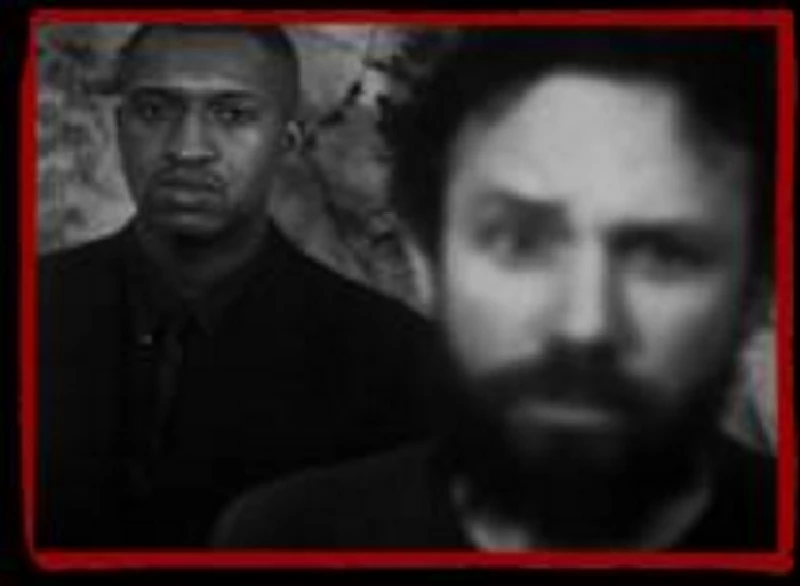
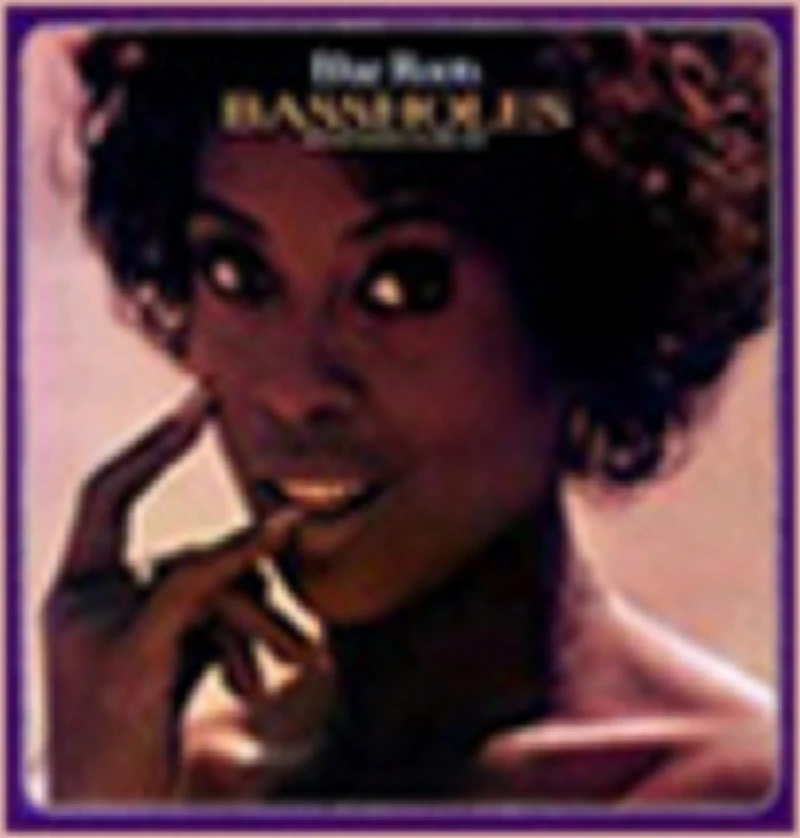
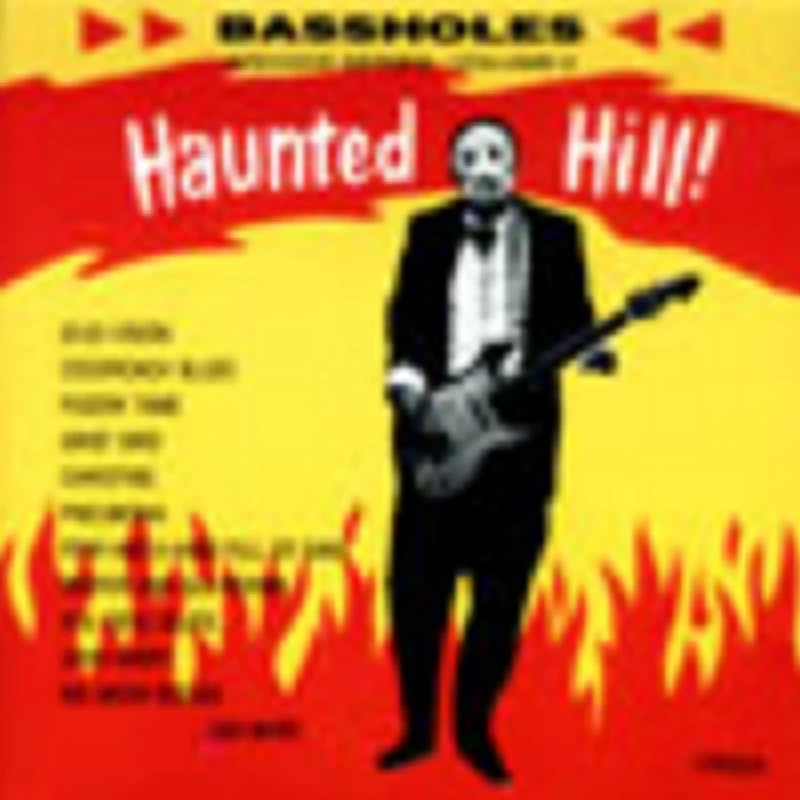
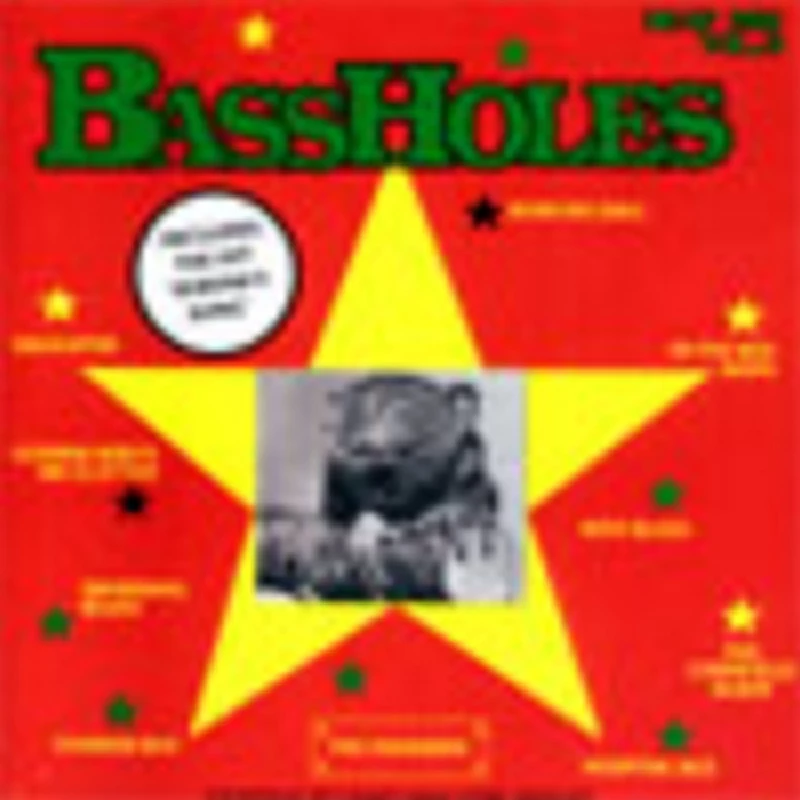
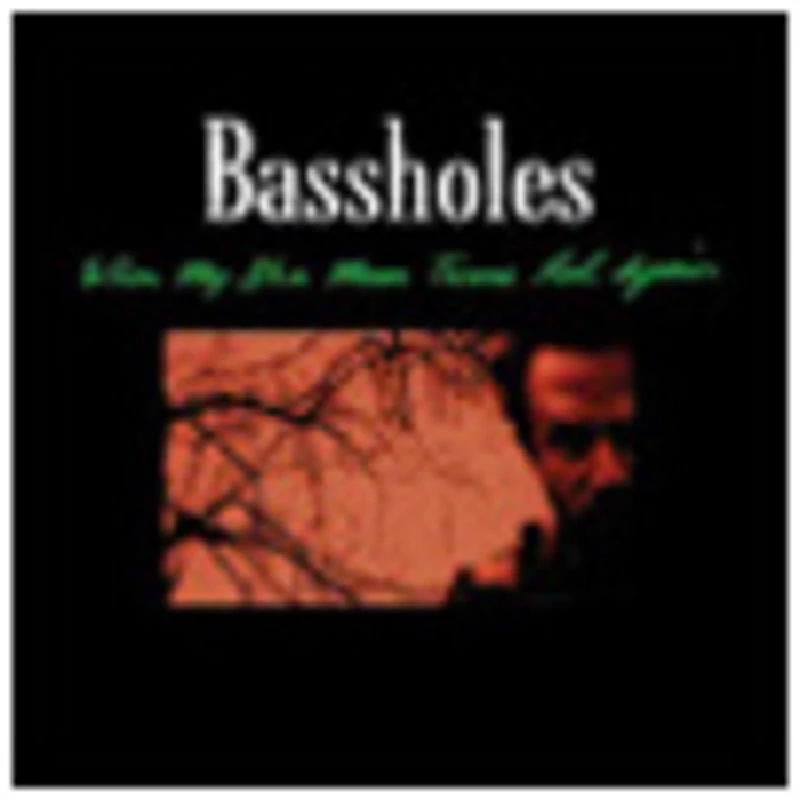
most viewed articles
current edition
Spear Of Destiny - InterviewRobert Forster - Interview
Fiona Hutchings - Interview
When Rivers Meet - Waterfront, Norwich, 29/5/2025
Carl Ewens - David Bowie 1964 to 1982 On Track: Every Album, Every Song
Brian Wilson - Ten Songs That Made Me Love...
Pistol Daisys - Waterfront, Norwich, 29/5/2025
Nils Petter Molvaer - El Molino, Barcelona, 24/4/2025
Credits - ARC, Liverpool, 17/5.2025
Gary Numan - Berserker
previous editions
Heavenly - P.U.N.K. Girl EPBoomtown Rats - Ten Songs That Made Me Love....
Dwina Gibb - Interview
Oasis - Oasis, Earl's Court, London, 1995
Sound - Interview with Bi Marshall Part 1
Trudie Myerscough-Harris - Interview
Serge Gainsbourg - Ten Songs That Made Me Love...
Brad Elvis - Interview
Susie Hug - Interview
Chuck Prophet - Ten Songs That Made Me Love...
most viewed reviews
current edition
Peter Doolan - I Am a Tree Rooted to the Spot and a Snake Moves Around Me,in a CircleGarbage - Let All That We Imagine Be The Light
John McKay - Sixes and #Sevens
Suzanne Vega - Flying With Angels
Little Simz - Lotus
Vinny Peculiar - Things Too Long Left Unsaid
Billy Nomates - Metalhorse
Eddie Chacon - Lay Low
Only Child - Holy Ghosts
Vultures - Liz Kershaw Session 16.06.88
Pennyblackmusic Regular Contributors
Adrian Janes
Amanda J. Window
Andrew Twambley
Anthony Dhanendran
Benjamin Howarth
Cila Warncke
Daniel Cressey
Darren Aston
Dastardly
Dave Goodwin
Denzil Watson
Dominic B. Simpson
Eoghan Lyng
Fiona Hutchings
Harry Sherriff
Helen Tipping
Jamie Rowland
John Clarkson
Julie Cruickshank
Kimberly Bright
Lisa Torem
Maarten Schiethart